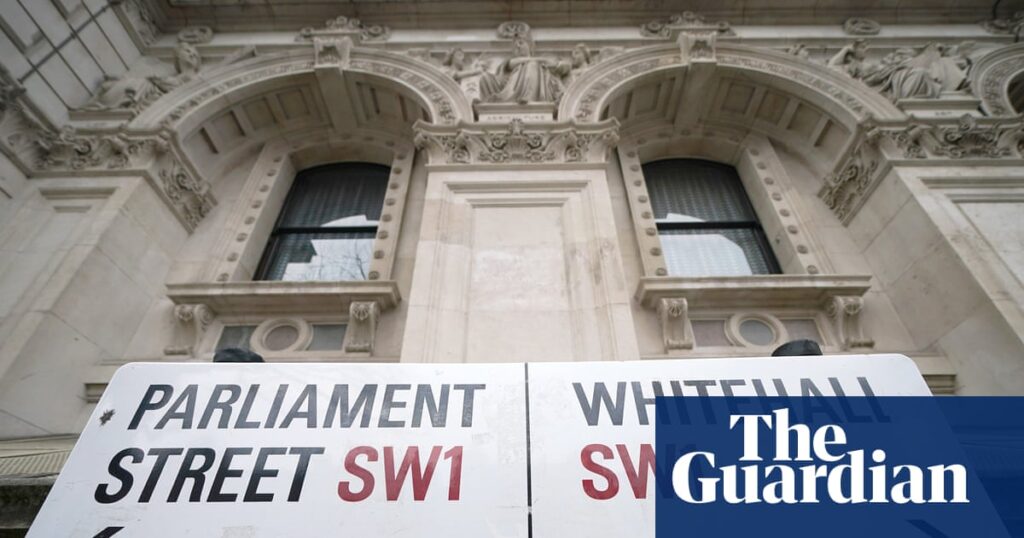A new civil service internship scheme will be open only to working-class students as part of a drive to make Whitehall better reflect the country, the government has said.
The programme will give students from lower-income backgrounds the chance to apply for paid government placements. The definition of working class will be based on what jobs were held by their parents when the applicant was 14 and replaces an existing programme open to all.
The Cabinet Office minister, Pat McFadden, said the action was being taken because applicants from lower socioeconomic backgrounds were less likely to get a place on the so-called fast stream.
“We need to get more working-class young people into the civil service so it harnesses the broadest range of talent and truly reflects the country,” he said. “Government makes better decisions when it represents and understands the people we serve.
“I want to open up opportunities for students from all backgrounds, and in every corner of the UK, so they can take a leading role at the heart of government as we rewire the state and deliver the plan for change.”
The two-month summer programme will give 200 undergraduates the opportunity to work in a civil service department from next year, with applications starting this October.
Their placement work could include planning events, writing briefings for ministers, shadowing senior civil servants and carrying out research for policy development. They will also be allocated a “buddy” who is a current fast-streamer and get access to skills sessions.
Participants who perform well will be fast-tracked to the final stages of the fast-stream selection process if they decide to apply for a job after graduation.
There is a standard government definition of someone’s socioeconomic status based on parental occupation, worked out under criteria from the Office for National Statistics.
The main question is whether the highest earner in the household when a person was 14 was: a modern professional such as a teacher or nurse; clerical such as a secretary; senior manager; technical worker such as a motor mechanic; semi-routine manual such as a postal worker or security guard; routine manual such as a van driver or cleaner; junior/middle manager such as a publican or retail supervisor; or in a traditional professional occupations such as an accountant or solicitor. Other questions involve whether the highest earning parent was employed or self-employed, and whether they supervised others.
People with parents whose occupations were receptionist, electrician, plumber or van driver would be likely to qualify as working class.
The most recent data shows only about one in 10 successful applicants to the fast-stream graduate programme come from the lowest income backgrounds. The fast-stream programme was suspended briefly in 2023 as a cost-cutting measure but has since been reinstated.
after newsletter promotion
Dave Penman, the general secretary of the FDA union for senior civil servants, said the changes to the summer internships to increase the number of working class people entering the civil service were welcome but the government could also improve progression through civil service grades for that demographic.
Sarah Atkinson, the chief executive of the Social Mobility Foundation, said she was “delighted by the government’s decision to ringfence internship opportunities for students from lower-income backgrounds”.
“We know that talent is everywhere, but opportunity is not, and sometimes bold action is needed to create a truly level playing field,” she said.
However, the Conservatives appeared less happy. Kemi Badenoch said: “Under my leadership, a Conservative government would scrap all this rubbish and just hire the best people.”
Ministers have pledged to cut the size of the civil service, with tens of thousands of roles estimated to go over the coming years. New figures show it has grown to a 20-year high of almost 550,000 people as of March this year, with most manager level or above and the growth attributed to more operational frontline roles.


